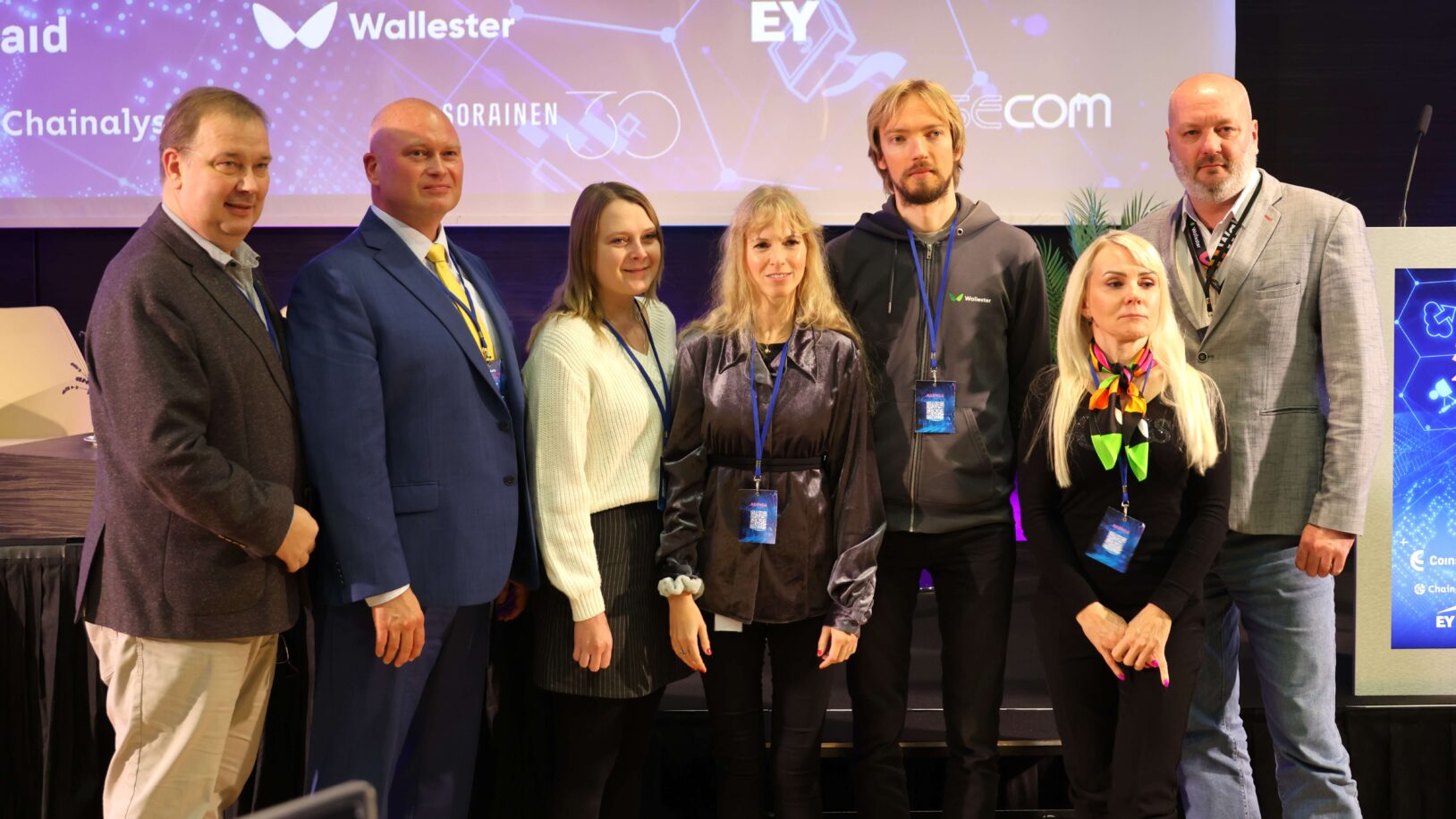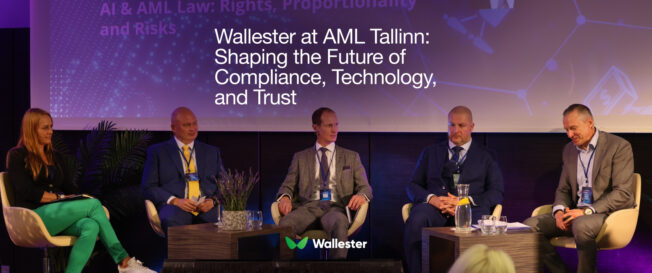Wallester’s compliance leaders Indrek Tibar and Aivar Paul joined top regulators, industry experts, and fintech specialists at AML Tallinn 2025 – the leading anti-money laundering and financial crime conference in the Nordic-Baltic region. Their participation underscored Wallester’s commitment to advancing responsible innovation and fostering trust across the European payments ecosystem.
A Regional Hub for Global Compliance Dialogue
The AML Tallinn Conference – part of the Nordic-Baltic AML / FinCrime & Tech series – has become a cornerstone for professionals navigating the intersection of compliance, regulation, and emerging technologies.
Held at Swissôtel Tallinn and streamed globally, the 2025 edition explored the theme: “Transparency, Technology, and Trust in a Shifting Banking, Financial & Crypto Landscape.”
On the first day of the conference (Day Two is scheduled for 18 November), the event brought together regulators, supervisory authorities, law enforcement agencies, and fintech leaders to discuss critical topics ranging from the upcoming EU AML Package to AI-driven compliance systems, fraud detection, and crypto forensics.
Wallester supported the event as a Platinum Sponsor, further emphasising the company’s strategic role in driving thought leadership on financial integrity and compliance innovation.
AI and AML: Rights, Risks, and the Reality of Data
One of the key parts of the conference was the panel discussion “AI & AML Law: Rights, Proportionality and Risks,” featuring Indrek Tibar, Head of AML at Wallester.
The conversation tackled one of the most complex questions facing compliance today: how to harness artificial intelligence to fight financial crime without compromising individual rights or transparency.
“The volume of data generated, often without our awareness or understanding, is enormous and likely to continue growing,” said Tibar. “We leave digital traces everywhere, and financial data is no exception. Such data can be easily used for profiling, which has many applications, some good, some bad. In the AML universe, this data is also utilised; however, it’s not always clear how it’s used or should be used.”
Indrek Tibar
Tibar’s remarks reflected a deep concern about the ethical and practical implications of mass data collection in financial compliance. He highlighted that while users may appear to consent to sharing personal details with service providers, true choice is limited in an increasingly digital economy.
“Although we can argue that we voluntarily share personal details with private entities, do we truly have a choice?” he added. “We need to use these services unless we opt solely for cash, or when we communicate through services provided by email providers, banks, or social media, if we want to maintain at least some level of modern connectivity. Therefore, in my view, our options are limited.”
In exploring the role of artificial intelligence, Tibar also questioned the industry’s understanding of what constitutes “AI” in practice.
“The definition of AI is often vague,” he noted. “Most monitoring and screening tools on the market are labelled as AI-supported or AI-powered, though the actual level of AI varies. Some organisations have developed their own tools to detect behavioural patterns indicative of money laundering. However, a common challenge remains – despite the increasing amount of data generated, we lack specific, targeted data. We need to teach the machine to distinguish between legitimate and illicit behaviour, but the limited financial data available hinders this task. In this context, even millions of transactions are not enough.”
Tibar’s insights captured the central dilemma of modern AML work: the tension between technological capability and data sufficiency. His call for clarity and proportionality aligns with Wallester’s broader vision of responsible innovation – using technology to strengthen integrity, not simply to automate compliance.
Bridging Public- and Private-Sector Expertise
Also representing Wallester at AML Tallinn was Aivar Paul, Chief AML Officer and Member of the Management Board.
With extensive experience at Estonia’s Financial Intelligence Unit (FIU), Paul brings a public-sector perspective that complements Tibar’s analytical and regulatory insight.
Throughout the conference, Paul engaged with counterparts across the region on issues of risk management, transaction monitoring, and cross-border collaboration — all critical to ensuring that financial technology evolves within a robust regulatory framework.
Together, Tibar and Paul form the core of Wallester’s compliance leadership, combining operational, regulatory, and technological expertise to ensure that the company not only meets but actively shapes emerging AML best practices across Europe.

A Shared Vision for the Future of Financial Integrity
As financial ecosystems grow increasingly complex — blending traditional banking, embedded finance, and digital assets — trust has become the defining factor of sustainable innovation.
For Wallester, participation in AML Tallinn is part of a broader mission to build compliance frameworks that enable progress without sacrificing accountability.
“AI has enormous potential to strengthen AML processes — but technology cannot replace accountability,” Tibar concluded. “The systems we build must uphold fairness, transparency, and proportionality.”
Wallester’s active engagement in regional compliance dialogue reflects a long-term strategy: to lead by example, invest in advanced regulatory technology, and collaborate openly with industry and supervisory partners to make financial services more secure, transparent, and trusted.



